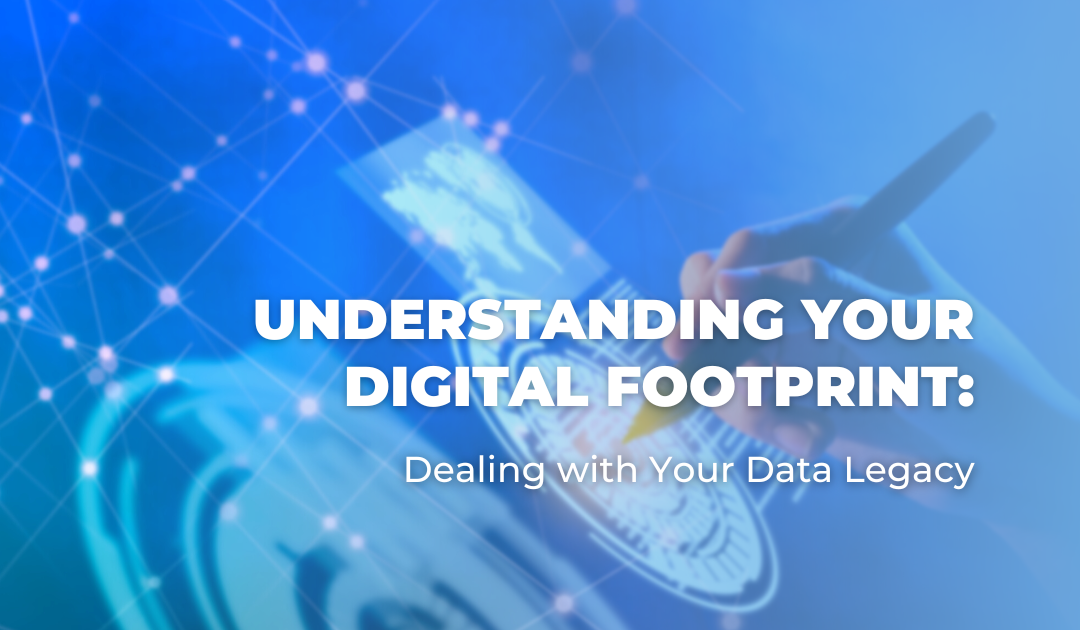
What happens to your data when you’re not around anymore?
It may not be the most cheerful subject to contemplate, but it’s something every one of us should think about before we pass on. Just like your worldly possessions, your data stays behind when you die.
So, who decides what happens to it?
Data privacy in general has become a controversial issue in recent years and dealing with your data legacy is a big part of that. How can you ensure that your data gets handled with respect, and according to your wishes?
We’re exploring the subject of data legacies and looking at how major tech companies are trying to solve the issue.
Let’s dive in!
Delete, Memorialize, or Transfer?
Big tech companies are taking varying approaches to handling the account data of deceased clients. Up until recently, the default setting for most inactive accounts across all platforms was simply to delete or archive the account. This means the account becomes inaccessible, even with valid login credentials, and its data gets archived.
Many major social media and technology companies are still using this approach; however, this appears to be changing over time.
Some social media platforms are granting users the opportunity to memorialize their accounts. This means that a pre-selected friend or family member gets the rights to the account, and the page becomes an online memorial site for the deceased.
Friends and family can then post their memories, photos, and tributes on the memorial page for others to see and enjoy. Of course, not everyone wants to be remembered in this fashion, and can simply opt for their account to get deactivated.
Other companies allow users to nominate one or more people to manage their data for them after they’re gone, without the memorialization option. After all, we store a significant amount of important and sentimental data in cloud storage. There will inevitably be sensitive information, like passwords and financial records, as well as personal data, like photos to oversee. Understandably, most people don’t want these things to fall into the care of faceless corporations or to simply disappear.
So, which of these options can you expect from which companies?
Google has implemented one of the most robust data legacy plans for its users. Considering the vast amounts of sensitive and personal data most of us store on Google cloud storage, this comes as a relief to many.
The Inactive Account Manager is available to all Google users. This tool allows you to choose when your account becomes inactive by selecting a period between 3-18 months. You can select up to ten trusted contacts who will be automatically notified of your inactivity once the selected period of time has passed.
You can also choose to have your Google data automatically shared with one or more of your chosen contacts so that they can either preserve or dispose of it according to your wishes. This includes data from your Google Calendar, Google Chrome, Google Play Store, and Google Photos.
If you don’t want your Google data made available to anyone after your death, you can choose to have it automatically deleted after three months of inactivity.
Apple
Apple recently released a new feature which is now available to all their users. This feature, dubbed ‘legacy contacts’, allows you to select a few close contacts that will get a randomly generated, secure access code that they can use to manage your account once you’ve passed on.
To ensure that this feature isn’t abused (by a disgruntled ex-partner, for example) your legacy contact will need to provide your death certificate as well as their unique access code in order to use it.
Once the code and death certificate are reviewed and approved, your legacy contact has a period of three years during which they can view and manage all your data stored on your Apple devices and accounts.
Facebook grants users the opportunity to have their accounts memorialized. This means that your account becomes an online space where friends and family can post tributes, photographs and messages viewable by those on your Facebook friends list.
Once Facebook gets informed of your death by a trusted source, your profile is converted into a memorial page and handed over to a pre-selected legacy contact. This chosen person will be able to change your profile picture, create a pinned post, and also ask Facebook to permanently delete your account.
If you don’t want your account to be memorialized, you can ask Facebook to permanently delete it and all its data upon your death. Someone will still have to let them know, but once they do, your account gets permanently erased.
What About My Other Accounts?
Unfortunately, other major tech platforms haven’t yet developed their own solutions to the data legacy issue. Microsoft, for example, has no protocol in place that allows friends and family to manage a deceased loved one’s data. Your Microsoft account remains untouched for two years of inactivity. After two years, your data is permanently deleted. Twitter and Instagram allow anyone to request the deletion of an account upon providing proof of death.
In situations such as this, it is probably best to ensure that instructions and login credentials are left with a lawyer or trusted family member. That way, they can access and manage your data without obtaining permission from the hosting company.
If you have a website or online portfolio where you’ve loaded photos, it’s also a good idea to determine what will happen in the event of your death. You can opt to simply let the hosting run out and the site will automatically get removed by the provider and your domain put up for sale. Alternatively, you can ensure that a friend or a family member has the details needed to download any data they’d like to keep or to take over the hosting fees and site themselves to ensure it remains online.
Leaving A Digital Legacy
It might be somewhat morbid to ponder what happens to your data after you die, but it is something we should all think about sooner rather than later. Once you have arrangements in place, you can rest easy knowing that your digital footprint will either be memorialized or deleted as per your wishes.
Without the proper measures in place, it can become very difficult for your loved ones to deal with your online presence or extract important information from your accounts. They may also lose access to photographs that hold special memories. Making plans to hand over access can prevent a lot of unnecessary pain and frustration for your next of kin. Even if you’re still going to be around for many years to come, you may wish to set aside some time to think about your data legacy.
 Author:
Author:
Sydney Evans is a self proclaimed photophile and a content writer for various online photography outlets. She covers topics ranging from creative compositions, photography techniques, as well as advertising and promotions. In her free time, she carries a camera over her shoulder and takes snaps of subjects she finds fun and have deeper meaning.


Recent Comments